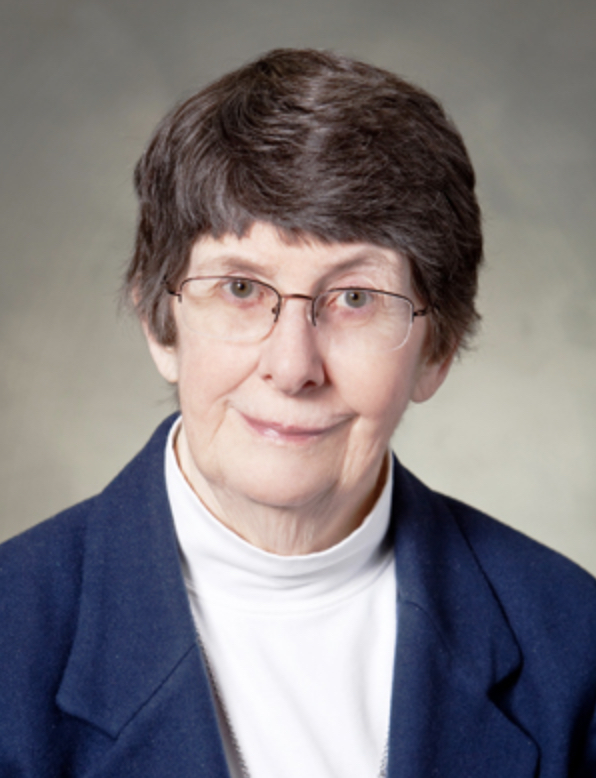Angelus News spoke with Sister Sara Butler, MSBT, professor emeritus of dogmatic theology at the University of St. Mary of the Lake, Mundelein, about the possibility of women deacons after the Vatican's recent study. A past member of the Vatican’s International Theological Commission, she is a consultant to the U.S. Bishops’ Doctrine Committee. She is author of “The Catholic Priesthood and Women: A Guide to the Teaching of the Church” (Hillenbrand, 2007).
Angelus News: This issue has recurred in public discussion quite often since the 1970s. Yet it’s never resolved. Why?
Sister Sara Butler: In part, the ongoing discussion is driven by the desire to give women equal access to public ministry in the Church. Its resolution, however, depends on the answers to certain historical evidence and theological questions that continue to be debated.
The historical issue is whether the public ecclesial office to which bishops admitted women (deaconesses) in the past was the same order — diaconate — to which men were ordained. This is the question the Holy Father asked a commission to study.
The other issue concerns the theology of holy orders, the sacrament by which the diaconate is conferred. Did women at one time receive the sacrament of holy orders?
Since the diaconate is a grade or degree of holy orders, and since a baptized male is the sacramental sign for the priesthood and episcopate, does the unity of the sacrament also require that the deacon be a male? Or, because the diaconate is a “proper and permanent rank of the hierarchy” — distinct from the priesthood — does it allow for the ordination of women?
Angelus News: The media narrative seems to be about a sexist Church that won’t acknowledge the obvious.
Sister Sara Butler: Reputable scholars, both Catholic and Eastern Orthodox, disagree over whether women were ever admitted to the same office as male deacons. Members of the International Theological Commission (advisory to the Congregation for the Doctrine of the Faith) have studied this twice without coming to a clear consensus.
The Commission’s 2002 historical-theological report addressed the more fundamental question, the theology of the diaconate, but it also identified the two issues mentioned above concerning the admission of women.
Critics argued that this section did not take sufficient account of current historical research, and Pope Francis has called for the new investigation whose report has not yet been published.
Angelus News: Would admitting women to the diaconate advance the cause of women in the Church?
Sister Sara Butler: In my opinion it is more important to give attention to the way all the baptized share in the priestly, prophetic, and kingly offices of Christ. The apostolic exhortation “Christifideles laici” (“Christ’s Faithful People”) develops this.
Its companion document, “Mulieris dignitatem” (“A Woman’s Dignity”), spells out the dignity and vocation of women, and this continues to be worthy of serious attention. In fact, the office of deaconess was eventually assumed by women in monastic life, and its ministries to women are carried out today by consecrated women, especially women religious.
The renewal of women’s religious life seems to me the better way to advance the cause of women in the Church.
Angelus News: Is there any way it could hurt their cause?
Sister Sara Butler: In the absence of male clerics, the nonordained faithful, including women, can “supply” many of the deacon’s functions. In my opinion, this allows sufficiently for women’s collaboration with the pastoral ministry of the ordained.
Catholic women have traditionally served the Church’s life, mission, and holiness in vocations that belong to its charismatic rather than its hierarchical constitution. This provides them a certain freedom and offers a complementary witness.
Angelus News: Media reports seem optimistic about the coming of ordained women deacons. Yet a majority of bishops seems to think it’s not happening. Why?
Sister Sara Butler: I think the divergent expectations reflect different levels of information about both the historical and theological issues. Bishops are probably aware of the theological question regarding the unity of the sacrament of holy orders, whereas many of the faithful and persons in the media are informed only by certain incomplete reports regarding the historical evidence.
My own opinion relies in large part on the fact that the few rituals we have for ordaining (“ordination” in the early Church meant installation in office) male and female candidates distinguish them in ways that explicitly appeal to gender.
The rites for [male] deacons compare them to Jesus Christ, St. Stephen, and the Levites of the Old Testament. The rites for deaconesses compare them to Our Lady, Phoebe, other Old and New Testament women, and the Holy Spirit. Women in ecclesial offices are not said to symbolize Christ.
Mike Aquilina is a contributing editor for Angelus and author of many books, including “Mothers of the Church: The Witness of Early Christian Women” (2014).
SPECIAL OFFER! 44 issues of Angelus for just $9.95! Get the finest in Catholic journalism with first-rate analysis of the events and trends shaping the Church and the world, plus the practical advice from the world’s best spiritual writers on prayer and Catholic living, along with great features about Catholic life in Los Angeles. Subscribe now!

